What Is The Length Of Service For British Prime Minister
The Prime Minister is the political leader of the U.k. and is the head of the Authorities. So far there accept been 14 Prime number Ministers during the reign of Queen Elizabeth 2, some more than once. The official residence of the Prime number Government minister of Britain is x Downing Street, London.
| term | name | political political party |
| 1721-42 | Sir Robert Walpole – Restored confidence in the country following the South Sea Bubble financial crash of 1720. Dominated the political scene during the reigns of George I and George II. George 2 made Walpole a gift of 10 Downing Street. Walpole resigned as a effect of his perceived mis-handling in dealing with the War of Jenkins' Ear. | Whig |
| 1742-43 | Earl of Wilmington – Suffering poor health for most of his time as Prime Minister, he died in office. | Whig |
| 1743-54 | Henry Pelham – During his time in the postal service he oversaw the the British involvement in the State of war of the Austrian Succession in 1744-48, the 1745 Jacobite Rise and the adoption of the Gregorian calender. He died in office. | Whig |
| 1754-56 | Thomas Pelham-Holles, Duke of Newcastle – Assumed the office of Prime Government minister just x days after the decease of his brother Henry Pelham. During the Seven Years' War, he was blamed for the loss of Minorca and was replaced by the Duke of Devonshire. | Whig |
| 1756-57 | William Cavendish, Duke of Devonshire – In a government effectively controlled by Pitt the Elder, Devonshire's assistants was brought to end following the dismissal of Pitt by the king, it was replaced by the Second Newcastle Ministry building. | Whig |
| 1757-62 | Thomas Pelham-Holles, Duke of Newcastle – Returning to role with Pitt the Elder as Southern Secretary, this government helped steer U.k. to ultimate victory over French republic and Spain during the Vii Years' War. | Whig |
| 1762-63 | John Stuart, 3rd Earl of Bute – A favourite of George III, he was the showtime Scot to hold the pinnacle office. Unpopular with the 'swell unwashed', he introduced a tax on cider in order to assistance pay for the Seven Years' State of war. He resigned following tearing criticism of his treatment of the peace negotiations. | Tory |
| Sir Robert Walpole, Lord N, William Pitt The Younger | ||
| 1763-65 | George Grenville – The introduction of the Stamp Act of 1765 imposed a straight tax on the British colonies and plantations in America, one of the sparks that would help ignite the American State of war of Independence. | Whig |
| 1765-66 | Charles Watson-Wentworth, 2nd Marquess of Rockingham – Bowing to public pressure from disaffected American colonists and British manufacturers, the unenforceable Stamp Act was repealed. He also appeased the 'great unwashed' by scrapping Bute's cider tax. | Whig |
| 1766-68 | William Pitt 'The Elder', 1st Earl of Chatham – Known every bit the 'Keen Commoner', Pitt is credited with creating the British Empire. Although only Prime Minister for ii years, he dominated British politics in the mid-18th century. His military campaigns in Canada, Bharat, the W Indies and West Africa created a highly lucrative trading empire. | Whig |
| 1768-70 | Augustus Henry Fitzroy, Knuckles of Grafton – Assumed the acme task after Pitt cruel sick, his short time in accuse mainly involved attempting to restore friendly relations with the American colonies. Better remembered at the time for his colourful private life. | Whig |
| 1770-82 | Lord Fredrick N – Led Great Britain into the American State of war of Independence (1775). Although blamed for Britain's subsequent defeat, many of the armed services operations were hampered by infighting within the British loftier command in Northward America. | Tory |
| 1782 | Charles Watson-Wentworth, 2nd Marquess of Rockingham – During his second ministry Britain best-selling the indepence of the United States. He died of a sudden, just three months after assuming the top chore. | Whig |
| 1782-83 | William Niggling, second Earl of Shelburne – U.k.'due south first Irish-born Prime number Minister, a former general he was in office at the time of the Treaty of Paris which officially concluded the American War of Independence. The treaty too defined new borders for the United States, including all land from the northern Great Lakes to Florida in the due south. | Whig |
| 1783 | William Cavendish-Bentinck, 3rd Duke of Portland – As caput of a coalition government composed of Lord North'southward Tories and Charles James Play tricks's opposition Whigs, Portland was instrumental in ensuring Tory political party authorisation in the decades that followed. | coalition |
| 1783-1801 | William Pitt 'The Younger' – Son of Pitt the Elder, he became the youngest ever Prime Government minister, aged merely 24. Defended to sound government, his many achievements helped define the modern role of the function, including introducing the showtime income tax! He resigned when the king refused to accept Catholic emancipation. | Tory |
| 1801-04 | Henry Addington, 1st Viscount Sidmouth – Although the Treaty of Amiens in 1802 temporarily halted the hostilities between the French Republic and Smashing Uk, the uneasy truce concluded in May 1803 when United kingdom again alleged war on France. | Tory |
| 1804-06 | William Pitt the Younger – With the renewed outbreak of war with French republic, Pitt was returned to function. Exhausted by the demands of the top job, he died in role aged just 46. | Tory |
| 1806-07 | William Wyndham Grenville, 1st Baron Grenville – The youngest son of George Grenville, during his ministry the Slave Trade Act 1807: abolished the slave trade in the British Empire. Unable to control the coalition, he resigned the office. | coalition |
| 1807-09 | William Cavendish-Bentinck, 3rd Knuckles of Portland – Although aged and in poor wellness, Portland assumed the top task for the second time. His curt time in office was beset by disputes between warring factions within his ministry. He died 23 days after resigning his post. | Tory |
| 1809-12 | Spencer Perceval – With economic low and Luddite agitation at domicile, and the threat of Napoleon in Europe, his assistants was divided and repressive. The only British Prime Minister ever to exist assassinated, he was shot in the anteroom of the Business firm of Commons by a bankrupt who blamed the government for his misfortune. | Tory |
| 1812-27 | Robert Banks Jenkinson, 2nd Earl of Liverpool – With the assassination of Perceval, Liverpool was asked to class a regime. Following victory in the Napoleonic Wars, he helped guide the country through a period of radicalism and unrest, including the Peterloo Massacre. | Tory |
| 1827 | George Canning – To date the shortest serving Prime Minister, Canning died of a sudden from pneumonia, barely 5 months afterward assuming office. | coalition |
| 1827-28 | Fredrick John Robinson, Viscount Goderich – Defective support to hold together the fragile coalition of Canningite Tories and aloof Whigs, he resigned after less than 5 months in role. | Tory |
| The Knuckles of Wellington, Sir Robert Peel, Viscount Melbourne | ||
| 1828-30 | Arthur Welleslley, 1st Knuckles of Wellington – The 2d Irish-born Prime Minister and second veteran general, mayhap more famous every bit a soldier of the Napoleonic Wars than a politician. Is said to have commented after his first Cabinet meeting: "An extraordinary matter. I gave them their orders and they wanted to stay and discuss them." He introduced the Roman Catholic Relief Act 1829, removing many of the restrictions on Catholics in the Uk. Resigned after a vote of no confidence. | Tory |
| 1830-34 | Charles Gray, 2nd Earl Grey – Famous for the alloy of tea named after him, his political achievements included the Dandy Reform Act of 1832, which started the process of balloter change that nosotros recognise today. His other legacies included the abolition of slavery throughout the British Empire and restrictions apropos the employment of children. He resigned subsequently disagreements over his Irish gaelic policies. | Whig |
| 1834 | William Lamb, 2nd Viscount Melbourne – The last Prime Minister to be dismissed past a Sovereign, Rex William Four. | Whig |
| 1834-35 | Sir Robert Peel second Baronet – At the second fourth dimension of asking, Peel accustomed Rex William IV's invitation to form a government. Head of a minority government, he resigned post-obit a number of defeats in Parliament. | Whig |
| 1835-41 | William Lamb, second Viscount Melbourne – Returning to function for the second time, Melbourne constitute the new Queen Victoria much more agreeable than William IV. Tutoring the young queen in the means of politics, they formed a close relationship. He resigned afterward a serial of parliamentary defeats. | Whig |
| 1841-46 | Sir Robert Pare 2nd Baronet – Returning to office for the 2d time, Peel introduced important employment laws that banned women and children from working underground in mines, in add-on The Factory Act of 1844 limited the hours of work for children and women. Unable to feed a starving Republic of ireland, he finally succeeded in repealing the Corn Laws. | Conservative |
| 1846-52 | Lord John Russell, 1st Earl Russell – Russell was the last Whig Prime Minister. His Public Health Human activity of 1848 improved the sanitary conditions of towns and cities. He was in role at the time of The Great Exhibition of 1851. | Whig |
| 1852 | Edward Smith Stanley, 14th Earl of Derby – Considered by many to be the father of the modern Conservative party, his government complanate when the upkeep of his Chancellor, Benjamin Disraeli, was rejected by the firm. | Conservative |
| 1852-55 | George Hamilton Gordon, Earl of Aberdeen – A cousin of the poet Lord Byron, his regime was dominated by a state of war with Russia. He resigned after losing a vote of confidence into his handling of the Crimean War. | Peelite |
| 1855-58 | Henry John Temple, 3rd Viscount Palmerston – An Irish peer, his India Nib of 1858 transferred control of the Eastward India Visitor to the Crown. | Liberal |
| 1858-59 | Edward Smith Stanley, 14th Earl of Derby – Returning to function for the second time, his Jews Relief Human action of 1858, removed barriers to Jews inbound Parliament. | Conservative |
| 1859-65 | Henry John Temple, 3rd Viscount Palmerston – Returning to role for the 2nd time, his ministry building was dominated by the American Ceremonious War and the resulting suffering acquired past the Lancashire Cotton Famine. Hale and hearty to the stop, he died in function at the tender age of merely 81. | Liberal |
| 1865-66 | Lord John Russell, 1st Earl Russell – Returning to role for the second time, after the untimely death of Palmerston. | Liberal |
| 1866-68 | Edward Smith Stanley, 14th Earl of Derby – Returning to function for the third and final fourth dimension, his Reform Human action of 1867 doubled the number of adult males that could vote in England and Wales. | Conservative |
| Lord Palmerston, Benjamin Disraeli, Due west E Gladstone | ||
| 1868 | Benjamin Disraeli – Just ten years after the barriers to Jews entering Parliament had been removed, Britain has its kickoff, and and then far only, Jewish Prime Minister. In accepting the post, 'Dizzy' is said to have declared, "I have climbed to the top of the greasy pole". | Conservative |
| 1868-74 | William Ewart Gladstone – Gladstone led the greatest reforming administrations of the 19th century. His policies were intended to improve individual liberty by scrapping barriers to liberty and personal advancement. A heavy defeat at the 1874 full general election immune his arch-rival Disraeli to once over again reach the top of the greasy pole. | Liberal |
| 1874-lxxx | Benjamin Disraeli, the Earl of Beaconsfield – Returning to part for the second time at the age of 70, his policies introduced a large amount of social legislation, including providing housing for the poor and greatly improved sanitation. His human relationship with Queen Victoria helped to return her to public life, proclaiming her Empress of India. Anglo-Zulu Wars. | Conservative |
| 1880-85 | William Ewart Gladstone – Gadstone'southward second administration suffered a number of set-backs in foreign policy, including a humiliating defeat in the Beginning Boer War and failing to rescue Full general Gordon in Sudan. | Liberal |
| 1885-86 | Robert Gascoyne-Cecil, 3rd Marquess of Salisbury – Salisbury became leader of the Conservative party following the expiry of Disraeli in 1881, he reluctantly became Prime Minister and formed a minority authorities. | Conservative |
| 1886 | William Ewart Gladstone – Now aged 76, Gladstone'south introduction of a Habitation Rule Bill for Ireland split the Liberal Party. | Liberal |
| 1886-92 | Robert Gascoyne-Cecil, 3rd Marquess of Salisbury – With the split up in the Liberal Party, Salisbury attempted to contain the Irish problem by a combination of firm regime and reform. Creation of Rhodesia, modern 24-hour interval Zimbabwe, with its capital city named Salisbury. | Conservative |
| 1892-94 | William Ewart Gladstone – Now well into his 80s, this 'Grand Former Man' of British politics was returned to office for a fourth term and once over again introduced the Irish gaelic Abode Rule Nib. Although passed by the House of Commons, the bill was rejected by the Lords. Gladstone submitted his fourth and final resignation. | Liberal |
| 1894-95 | Archibold Primrose, 5th Earl of Rosebery – Reluctantly accepted the post of Prime Minister following the resignation of Gladstone. In a brusk lived assistants plagued by Cabinet disputes, he resigned having achieved his lifes iii ambitions… to marry an heiress, own a Derby winning horse and to be Prime Minister. | Liberal |
| 1895-1902 | Robert Gascoyne-Cecil, third Marquess of Salisbury – Returned to office for the tertiary and final time. During his tenure the Boer State of war bankrupt out in 1899, ending in 1902. He retired in favour of his nephew Balfour. | Conservative |
| Lord Salisbury, Arthur James Balfour, H H Asquith | ||
| 1902-05 | Arthur James Balfour – His Education Deed of 1902 standardised the educational system of England and Wales, handing powers from school boards to Local Instruction Authorities (LEAs). His chiffonier divide on the upshot of free trade policies. | Conservative |
| 1905-08 | Sir Henry Campbell-Bannerman – Glasgow born 'C-B' was the first in the top job to be given the official title of 'Prime Minister'. Outspoken on the 'barbarities' of the Boer War, he restored independence to the Transvaal and Orangish Free State in South Africa. | Liberal |
| 1908-15 | Herbert Henry Asquith – Asquith became Prime Government minister following the resignation of 'C-B'. He took charge in troubled times, with Irish Abode Dominion and Women'southward Suffrage the burning issues of the solar day. The Old Age Pension Act of 1908 laid the foundation of the modernistic welfare land. This was followed by the National Insurance Act of 1911, that provided an income for working people suffering illness or unemployment. He likewise led Britain into the First World War. | Liberal |
| 1915-16 | Herbert Henry Asquith – In order to gain maximum support for the ongoing war Asquith formed a coalition government. The disharmonize nevertheless, was not going well and so with deadlock in the trenches, Asquith resigned. | coalition |
| 1916-22 | David Lloyd George – The only Prime Minister to take spoken Welsh equally his first language, Lloyd George accustomed an invitation to form a government following the resignation of his young man Liberal, Asquith. A man of smashing energy and dynamism, he was widely touted as the man who had won the war and promised… 'a land fit for heroes'. The Anglo-Irish Treaty led to the establishment of the Irish gaelic Free State. The public outcry that followed his 'cash for honours' scandal saw him ousted from ability. | coalition |
| 1922-23 | Andrew Bonar Law – After Lloyd George had been removed from office past the Conservative members of his cabinet, the rex invited the Canadian-born Bonar Law to grade a new authorities. He lasted just 209 days in office before resigning due to ill wellness and died but 6 months later. | Bourgeois |
| 1923-24 | Stanley Baldwin – Just a few months into function and much to the surprise of all around him, Baldwin called an early general election on the upshot of protectionist trade tariffs. The policy was an effort to resolve Britain'due south economical issues, it accomplished however, the remarkable feat of reuniting the Liberals and letting Labour into power for the first time. | Conservative |
| 1924 | James Ramsay MacDonald – The very first Labour Prime number Minister, MacDonald came from a Scottish working class background. As head of a minority regime, he was reliant on the back up of the Liberals. Frustrated by his inability to introduce meaningful legislation he called an early on election. | Labour |
| 1924-29 | Stanley Baldwin – In his 2nd term in function, Baldwin was responsible for several notable social achievements including extending the right to vote to women aged over 21. He amazed the political world by inviting Winston Churchill, who at that time was a Liberal MP, to be his Chancellor of the Exchequer. He successfully steered the country through the rocky waters of the General Strike of 1926. | Conservative |
| 1929-31 | Ramsey MacDonald – In his second minority regime, MacDonald appointed the first ever female minister, Margaret Bondfield. Just a few months into his term still, the world was shaken by the Wall Street Crash of 1929 and the Great Deppression that followed. | Labour |
| 1931-35 | Ramsey MacDonald – With his Labour government divided on how to resolve an economic crunch that included the doubling of unemployment levels; MacDonald resigned but was reappointed at the head of a national coalition government (with back up from the Conservative and Liberal parties). This move toll him the back up of his own party and he once once again resigned | national coalition |
| 1935-37 | Stanley Baldwin – Returning to role for the tertiary time, his major achievement in this terminal phase of his career was to steer the country through the abdication of King Edward VIII in 1936. Recognising the threat of Adolf Hitler and Nazi Deutschland, Baldwin started a programme of re-arming the state. He was later criticised for non doing more to prepare. | Conservative |
| Lloyd George, Stanley Baldwin, Sir Winston Churchill | ||
| 1937-40 | Neville Chamberlain – When Baldwin retired after the coronation of George Six, Chamberlain was the obvious choice for leader of the party. Following a meeting with Adolf Hitler in Munich 1938, he famously returned declaring "I believe information technology is peace for our fourth dimension". Following the invasion of Poland, Chamberlain declared war on Germany on 3 September, 1939. | Conservative |
| 1940-45 | Sir Winston Churchill – Following Chamberlain's resignation, Churchill was appointed as Prime Minister of an all-party coalition government. The speeches he fabricated through his showtime summer in charge established a policy of 'no surrender', and the subsequent war machine alliances that he formed with both the USA and Soviet Wedlock steered the Allies to victory in World War II. Before long later VE 24-hour interval, Churchill was surprisingly defeated in a General Election. | coalition |
| 1945-51 | Clement Attlee – Subsequently leading Labour to a landslide victory, Attlee quickly gear up near implementing his parties manifesto pledges. Despite the state effectively bankrupt after the war, he managed the cosmos of the National Health Service in 1946. His 'cradle to grave' philosophy made healthcare free for all British citizens. In addition to this, many of Uk's largest industries such as coal mining (1946), electricity (1947) and the railways (1947) were brought under state control. In just a few brusque years he nationalised one 5th of the entire British economy. In 1949 his National Parks and Access to the Countryside Deed would open upward vast swathes of the British countryside to the general public for the first time. | Labour |
| 1951-55 | Sir Winston Churchill – Churchill's 2nd term in office was greatly influenced past his failing health. One contemporary even described him as "gloriously unfit for function". 1953 was peradventure a yr which Churchill appreciated almost, with all the historic pomp and celebrity that accompanied the coronation of Queen Elizabeth Ii. In matters away, the developing Cold War led him to authorise the manufacture of the British hydrogen bomb in 1955, or in Churchill's words 'arming to parley'. Later on that twelvemonth his deteriorating health forced him to resign, making mode for his Foreign Secretary and Deputy Prime Minister, Anthony Eden. | Conservative |
| 1955-57 | Sir Anthony Eden – Widely recognized as Winston Churchill's successor, as Prime number Minister he immediately called a general election and increased the Conservative majority. His success was to be curt-lived however, every bit Eden is best know for his controversial handling of the Suez crisis in 1956. Following a desperately executed invasion intended to seize command of the Suez Canal in Arab republic of egypt, there was widespread international condemnation and following a threat of The states sanctions, Eden was forced into a humiliating withdrawal. Isolated, Eden resigned having demonstrated to the globe that United kingdom was no longer the superpower it once was. | Conservative |
| 1957-63 | Harold Macmillan – Following the resignation of Sir Anthony Eden, Macmillan emerged from the wreckage of the Suez crisis to pb a demoralised Conservative party and country. Having told the queen that his new regime would only final weeks, Macmillan quickly went on to restore the nation's confidence and fortunes. As living standards and prosperity increased, 'Supemac' was able to claim that the British public had "never had it so skillful". In terms of foreign diplomacy, he helped to negotiate the Nuclear Exam Ban Treaty and speeded up the decolonisation of the British Empire. By the terminate of his term the country's economy was kickoff to falter and after a series of scandals he resigned. | Conservative |
| 1963-64 | Sir Alec Douglas-Domicile – Following Harold Macmillan's sudden resignation, Douglas-Dwelling house emerged equally the new leader of the Conservative party. As Prime Minister for just 363 days, he holds the tape as serving the second shortest premiership of the 20th century. | Conservative |
| 1964-70 | Harold Wilson – Winning the October election with a bulk of simply 4, Wilson'south plan was to modernise the country, aided past the "white heat of the technological revolution". His government introduced liberalising laws in the fields of capital punishment, abortion, homosexuality and divorce. On the event of the economy, the powerful trade-spousal relationship bosses refused to be controlled, resulting in a rise in unemployment and inflation. | Labour |
| Sir Anthony Eden, Harold Wilson, Edward Heath | ||
| 1970-74 | Edward Heath – Heath'due south premiership was one of the almost traumatic and controversial in recent history. A period of great industrial upheaval and economic turn down, his major 'achievement' was leading Britain into the European Common Market. Heath'due south attempts to weaken the power of the trade unions failed; the resulting strikes led to the lights going out across country for three days each week. His premiership as well coincided with the heights of the Troubles in Northern Ireland. | Conservative |
| 1974-76 | Harold Wilson -During his 2nd term in role income tax on top earners increased to 83% and unemployment reached 1 million. By early 1976 Uk's economic situation was so dire that a loan from the International Budgetary Fund (International monetary fund) was considered to exist the authorities'southward only option. To the surprise of all concerned and simply 5 days after his 60th birthday, Wilson resigned suddenly, making style for the older James Callaghan. | Labour |
| 1976-79 | James Callaghan – With aggrandizement running at 17% and one.5 million unemployed, Callaghan made the controversial decision to inquire the International monetary fund for an emergency loan. In render for $3.ix billion of credits, he attempted to impose tighter monetary control through wage restrictions for public sector workers. The unions' reaction to this was a wave of strikes that saw the dead not buried and rubbish lining the streets of United kingdom, uncollected. The winter of 1978-9 become known as the 'Winter of Discontent'. Callaghan failed to win a vote of 'no confidence'. | Labour |
| 1979-90 | Margaret Thatcher – The industrial unrest brought nigh by the 'Winter of Discontent' saw Mrs Thatcher elected the offset female person British Prime number Minister. Branded the 'Iron Lady', her early years in ability resulted in only a marginal comeback in the economy. The defining moment of her premiership came in April 1982, when she led the country to war against Argentine republic in the Falkland Islands. The successful outcome of the entrada transformed her standing in the opinion polls. | Conservative |
| 1990-97 | John Major – After spending billions trying to protect his pet economic policy – membership of the Exchange Rate Mechanism – his premiership would go on to come across the Great britain's longest period of continuous economical growth. His government started talks with the IRA seeking a peaceful end to the Troubles in Northern Ireland. | Conservative |
| 1997-2007 | Tony Blair – Labour's longest serving Prime Government minister, his authorities oversaw the Northern Ireland peace process. Signed on Good Friday, 10 April 1998, the Good Friday Understanding helped to end a period of disharmonize in the region known every bit the Troubles. His legacy on foreign affairs is perhaps a picayune more controversial, allied with the USA and President Bush, United kingdom armed forces were involved in an invasion of Afghanistan in 2001, and an invasion of Iraq in 2003. | Labour |
| 2007-x | Gordon Brown – Assumed the function of Prime Minister on 27 June later on Tony Blair left role. During his time in the 'top job' he was called upon to steer the land through the worldwide fiscal crisis of 2008. Hosting the G20 Elevation in 2009, he persuaded world leaders to make available $1.1 trillion to assist the world economic system through the crisis. Under his premiership UK combat operations in Iraq came to an end and British forces withdrew from the state. | Labour |
| 2010-15 | David Cameron – Headed United kingdom of great britain and northern ireland's first coalition government since Globe War 2, with the Liberal Democrat leader Nick Clegg as his deputy prime minister. The youngest Prime Minister since Lord Liverpool in 1812, in response to the global financial crisis the coalition government embarked on a plan of public spending restraint in order to reduce the upkeep deficit. Under his leadership, the UK committed to meeting the Un target of 0.7% overseas assist and development spending. During his time as Prime Government minister, he would oversee 3 national referendums. The outset in 2011, asked whether the traditional method of electing MPs should be changed. The second in 2014, asked whether Scotland should be an independent country. Cameron campaigned for Scotland to remain function of the UK, which he won. | Con / Lib coalition |
| 2015-16 | David Cameron – The third plebiscite under David Cameron's premiership concerned Uk's continuing relationship with the European Union (Eu). He led the campaign for the U.k. to remain in the Eu, however in June 2016, the British people voted to go out. Following this defeat, he resigned as prime number government minister and leader of the Bourgeois Party. | Conservative |
| 2016-19 | Theresa May – Following the resignation of David Cameron, May was elected leader of the Conservative Party and became the UK'southward 2d female prime minister. Triggering Article fifty in March 2017, she started the process of withdrawing the Britain from the European union. Just one month afterward, seeking to strengthen her manus in Brexit negotiations May called a snap election. The outcome of the election was a hung parliament, the number of Bourgeois seats had fallen from 330 to 317. During her premiership unemployment in the United kingdom fell to tape lows. Later having typhoon versions of her European union withdrawal agreement rejected by parliament on iii occasions, May resigned. | Conservative |
| 2019-19 | Alexander Boris Johnson – Following the resignation of Theresa May, Johnson was elected leader of the Conservative Party and appointed prime government minister. With no working majority in parliament and with many members of his own party opposing his hardline Brexit stance, Johnson was forced to call yet some other United kingdom of great britain and northern ireland full general election. | Bourgeois |
| 2019 – | Alexander Boris Johnson – The 'keen unwashed' appear the have canonical of Johnson's hardline stance on Brexit, every bit the Conservative Party win the December election with a parliamentary majority of lxxx seats. Subsequently 47 years of membership, the UK officially leaves the EU on 31st January 2020. Just a few months later, Johnson would face the get-go major crisis of his premiership, the COVID-nineteen pandemic. | Bourgeois |
| James Callaghan, Margaret Thatcher, John Major | ||
What Is The Length Of Service For British Prime Minister,
Source: https://www.historic-uk.com/HistoryUK/HistoryofBritain/Prime-Ministers-of-Britain/
Posted by: martinezwasight.blogspot.com

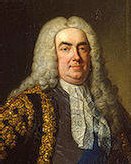
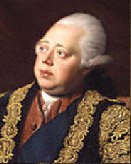
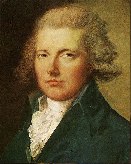
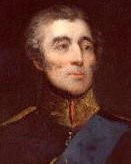
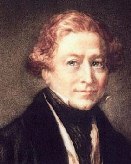
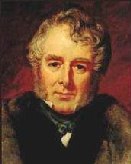
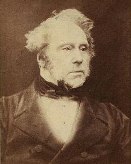
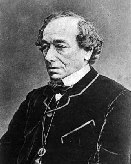
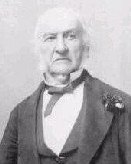
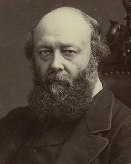
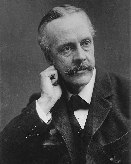
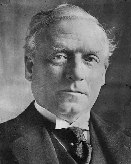
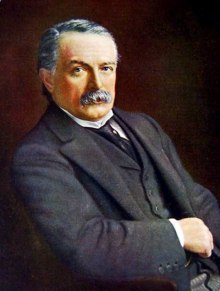
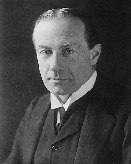
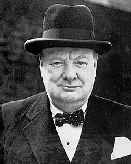
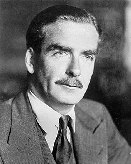
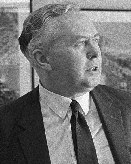
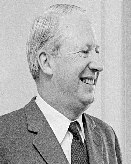
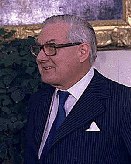
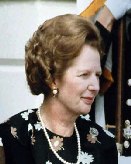


0 Response to "What Is The Length Of Service For British Prime Minister"
Post a Comment